Juicy, tender chicken is coated in a sweet and savory peanut sauce in this delicious Filipino Chicken Kare Kare recipe. It’s a traditional Filipino recipe that’s just as flavorful as the authentic version, but made with easy-to-find ingredients.
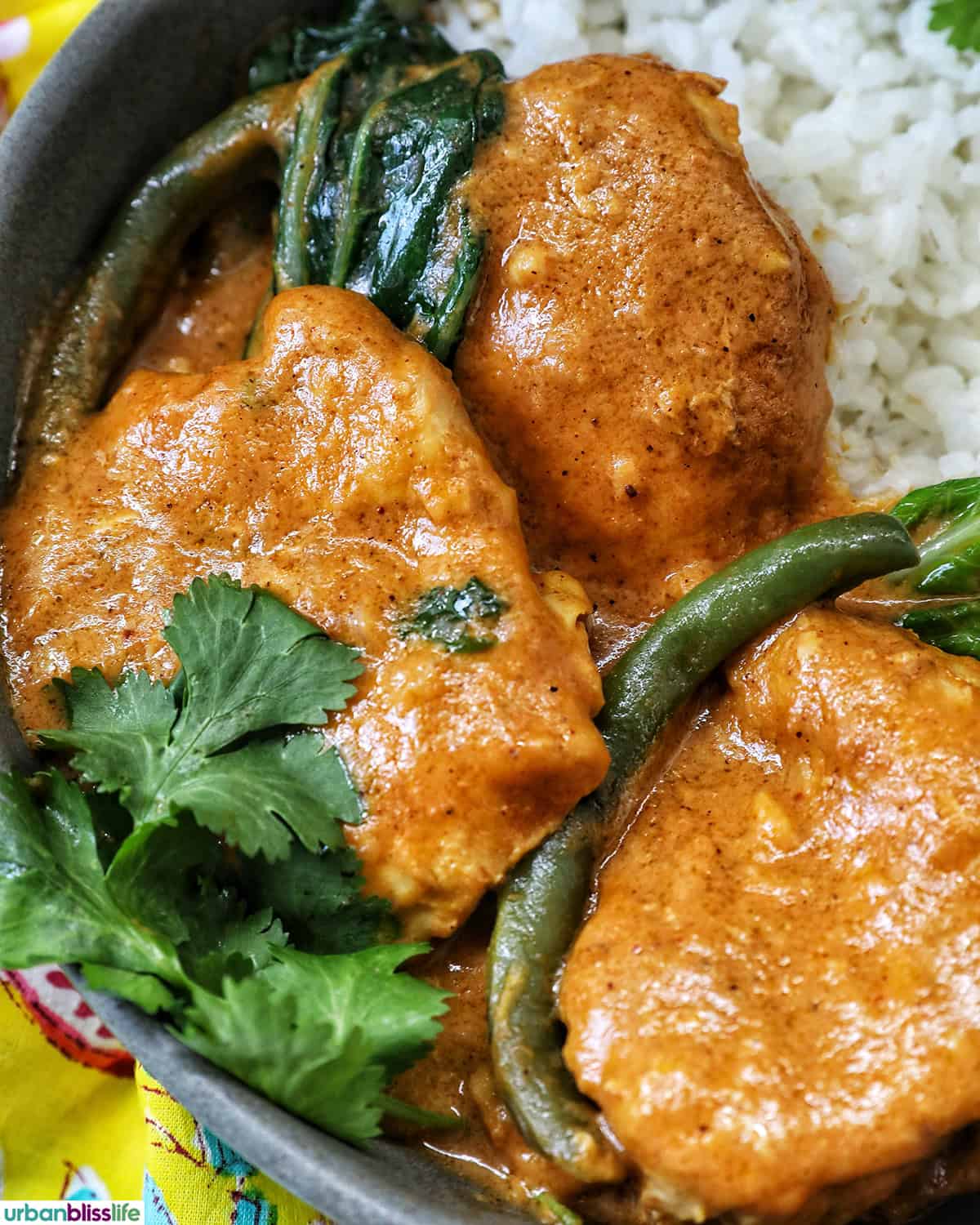
This is not your average chicken stew.
If you’ve never had Filipino chicken kare kare, you are in for a mouthwatering comfort food dish you’ll want to make again and again.
Golden peanut sauce, tender chicken, and vibrant vegetables come together in this soul-satisfying Filipino classic. Each bite is rich, nutty, and comforting with a depth of flavor that lingers.
The silky sauce, bold flavors, and colorful vegetables make it a dish that feels both hearty and celebratory. It’s perfect for family dinners or when you want something cozy yet special.
Table of Contents
About kare kare
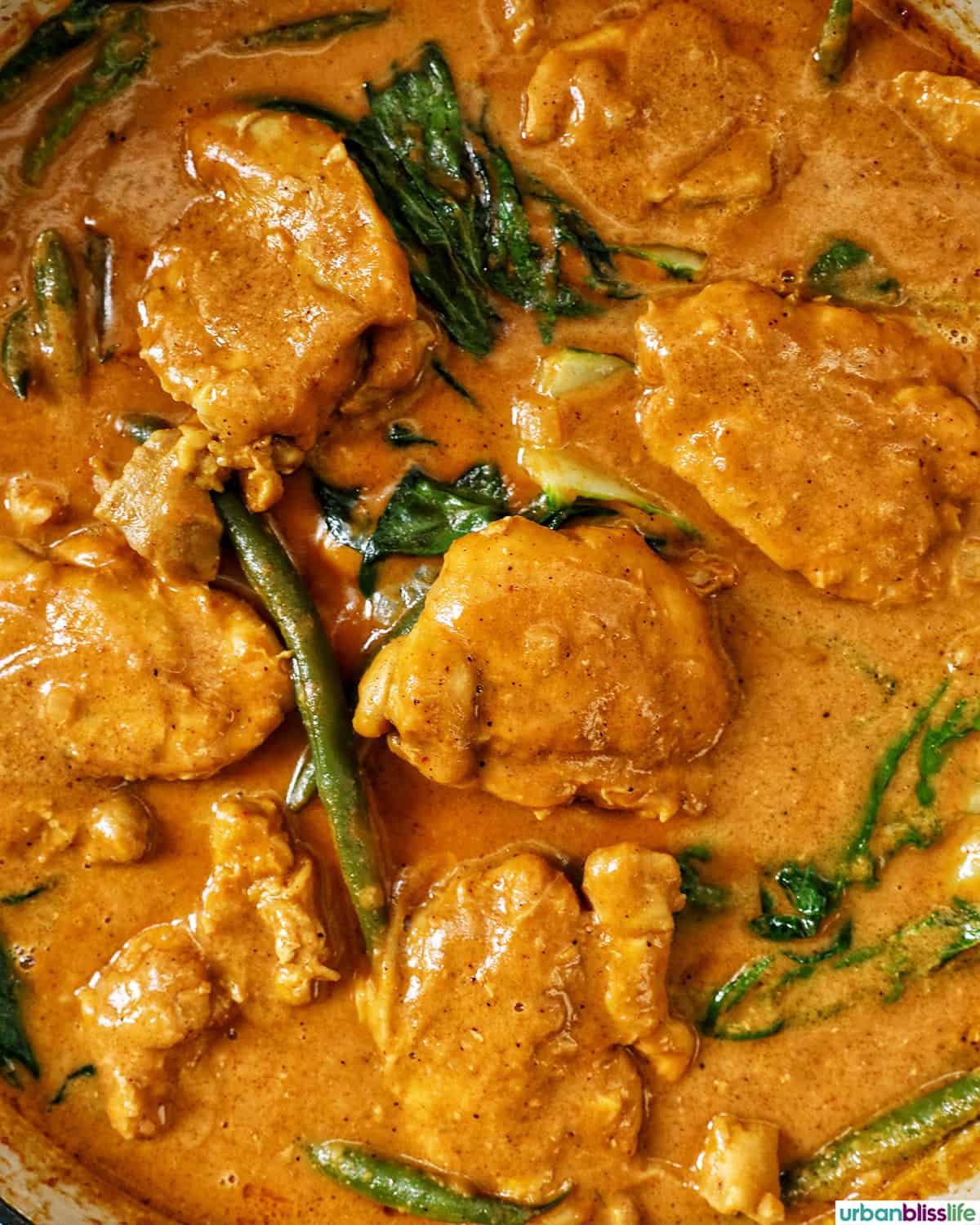
Kare kare is a dish from the Philippines that is believed to have origins in Pampanga, a province north of the capital of Manila. It’s a region known as the culinary capital of the country.
Traditionally, kare kare is made with oxtail or tripe. That’s how my family always makes it. But more recently, this stew has evolved to include chicken and other proteins.
Its signature peanut-based sauce and traditional serving with bagoong (fermented shrimp paste) make it uniquely Filipino.
It’s a dish my own family loved to make while I was growing up, and I hope you will love it, too!
Why you’ll love this family favorite recipe!

- Rich and creamy peanut sauce that tastes like comfort in a bowl.
- Easier and lighter than traditional beef or oxtail versions.
- Packed with bright, colorful vegetables that add freshness and crunch.
- A fun way to explore authentic Filipino flavors.
- Perfect for sharing with family and friends!
Ingredient notes
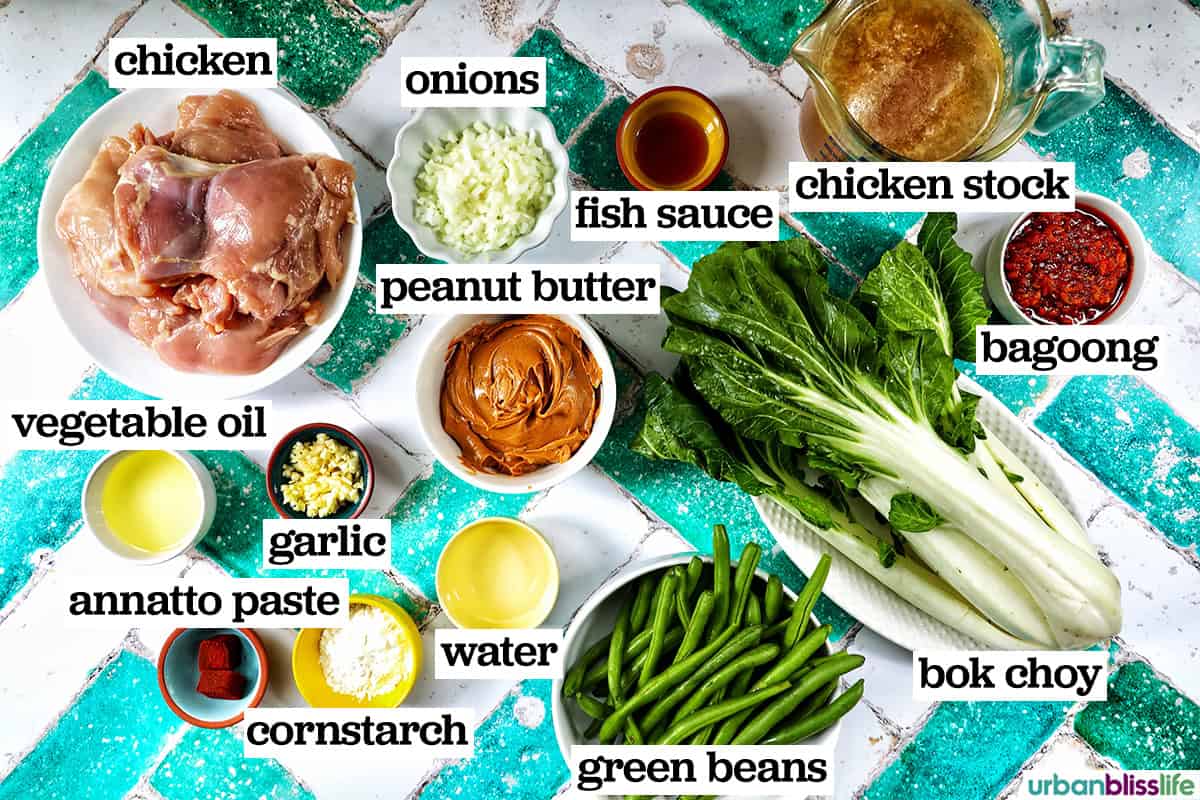
This recipe is inspired by my family’s authentic kare kare recipe. I’ve switched out some ingredients that might be harder to find in the US, UK, and EU countries, with more western ingredients. If you want to make a more traditional version, I’ve included the ingredients to look for below.
- Chicken: I use boneless, skinless chicken thighs for the best flavor. But you can also use bone-in thighs or drumsticks. Oxtail is the more traditional protein in kare kare.
- Peanut butter: Use unsweetened natural, creamy peanut butter for a rich and authentic taste.
- Annatto paste: This traditionally adds color to kare kare, and a very subtle nutty flavor. You can find this in a lot of local grocery stores in the US in the Mexican food section.
- Vegetables: Eggplant, long beans, and bok choy are traditional, but I use green beans and bok choy. You can always add eggplant if you desire.
- Aromatics: Garlic, onions, and fish sauce all lend that classic Asian aromatic and flavor foundation to this dish.
- Cornstarch: Helps thicken the sauce while keeping it silky.
- Optional: Bagoong (shrimp paste): This Filipino fermented shrimp paste was once banned in the United States. Currently, it is no longer banned, but it can still be a challenge to find in most grocery stores and even in Asian supermarkets in the US. It adds a savory, salty kick that balances the peanut sauce. You can substitute a side serving of other shrimp paste you might find at your local Asian grocery store, but know that it probably will not have the same authentic flavor.
Step-by-step instructions
You’ll find the full list of ingredients along with measurements, and more detailed instructions in the printable recipe card at the bottom of this post.
Here are some step-by-step photos to help you make this Filipino dish.
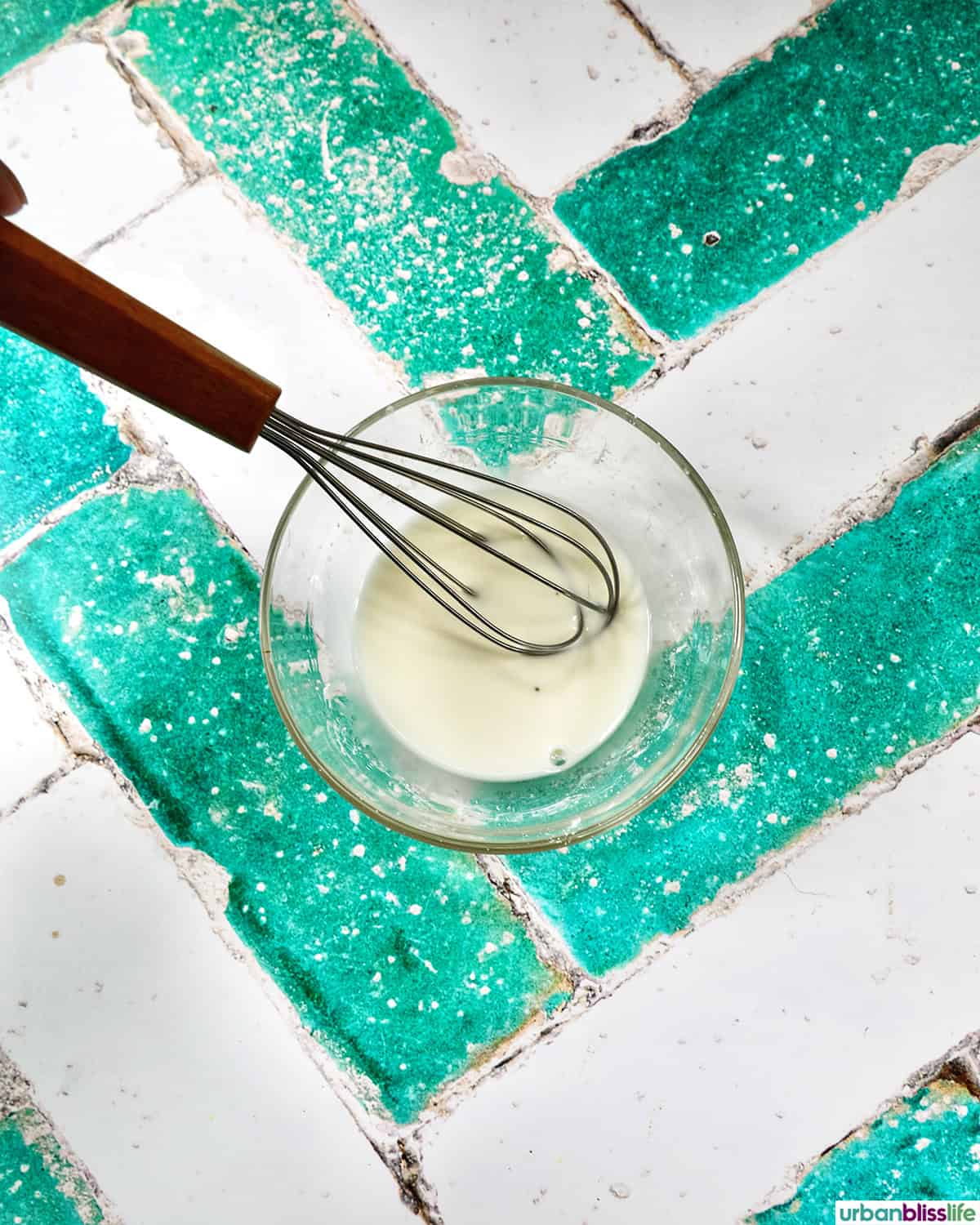
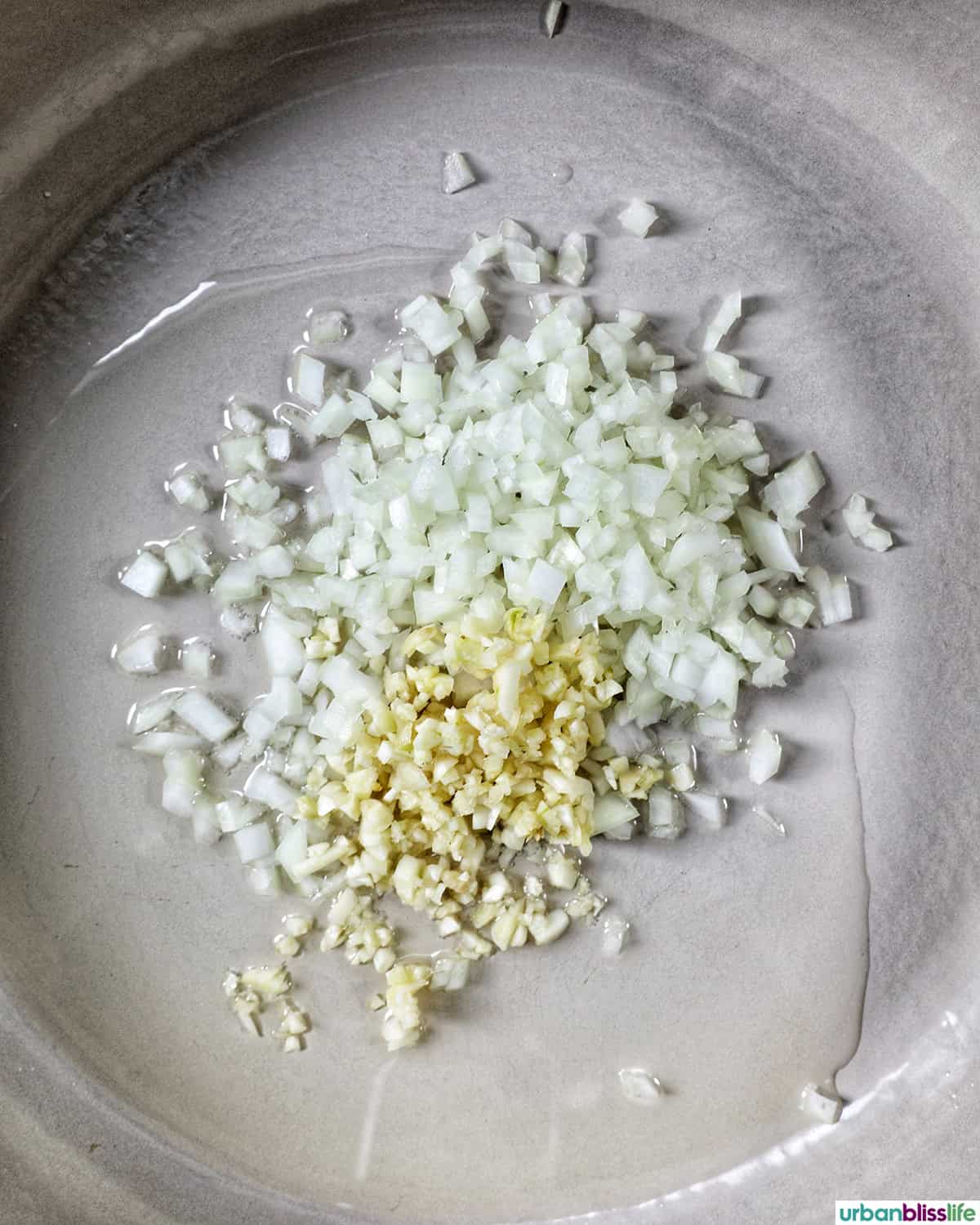
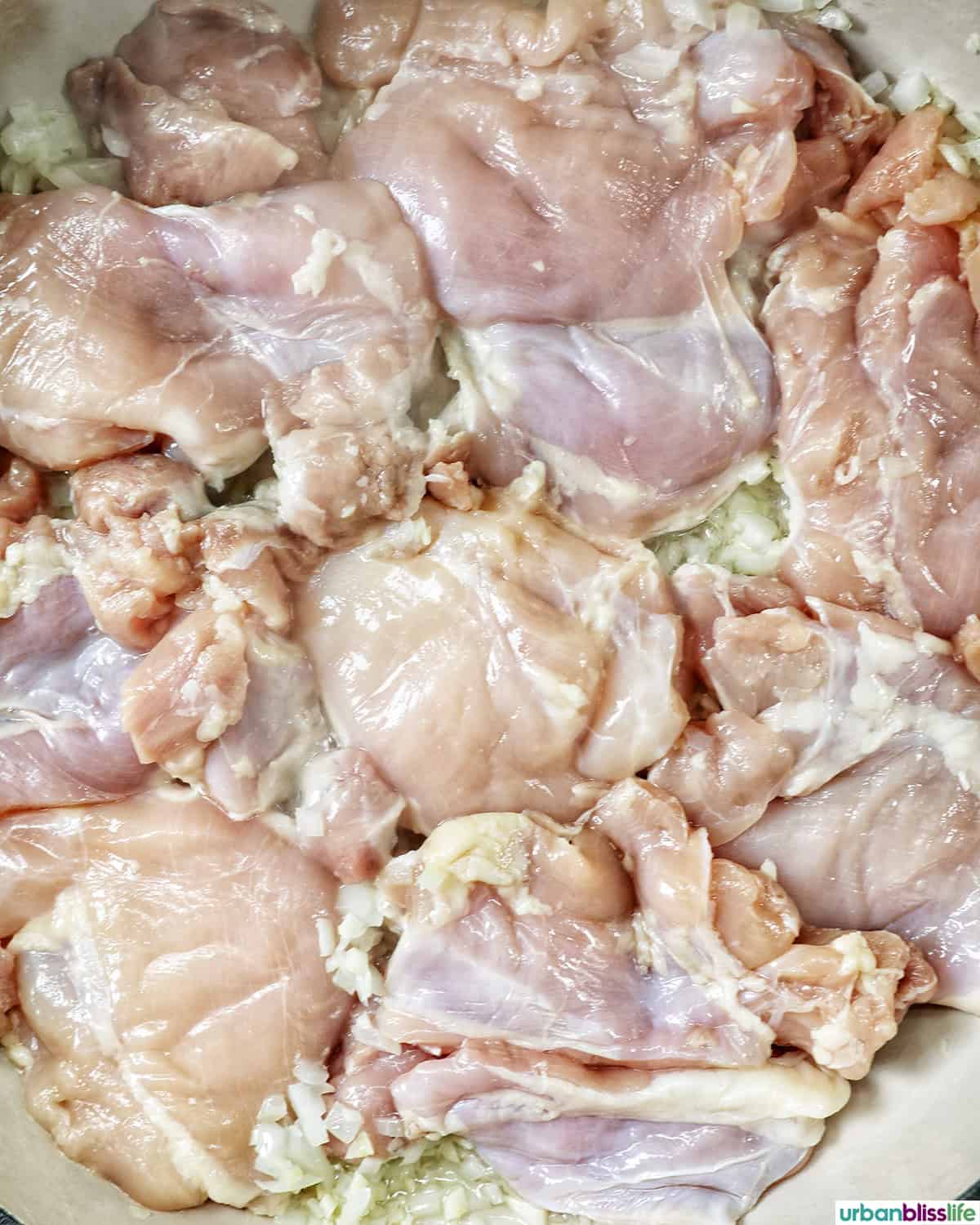
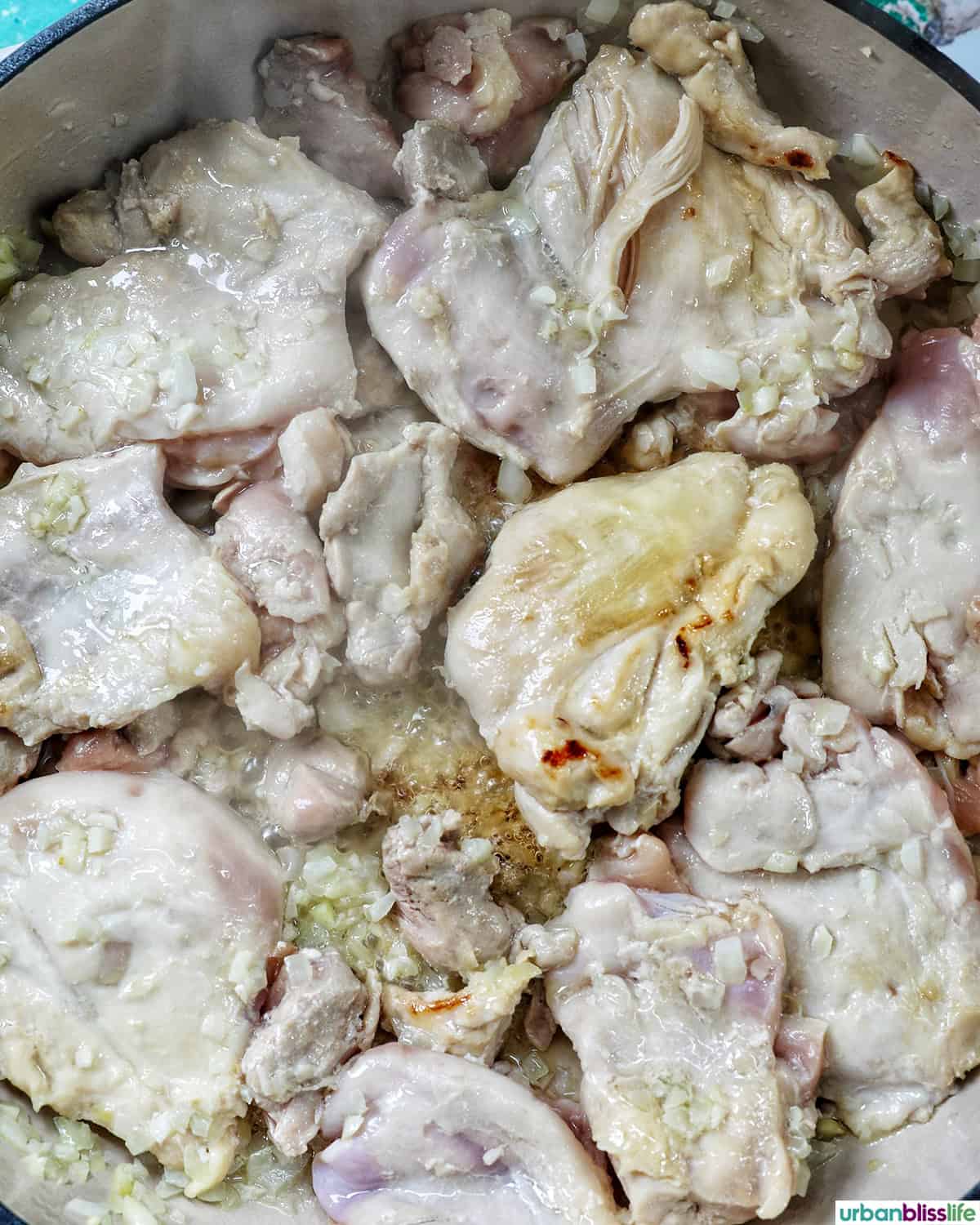
- Make the cornstarch slurry; set aside.
- Sauté the onions and garlic.
- Brown the chicken.
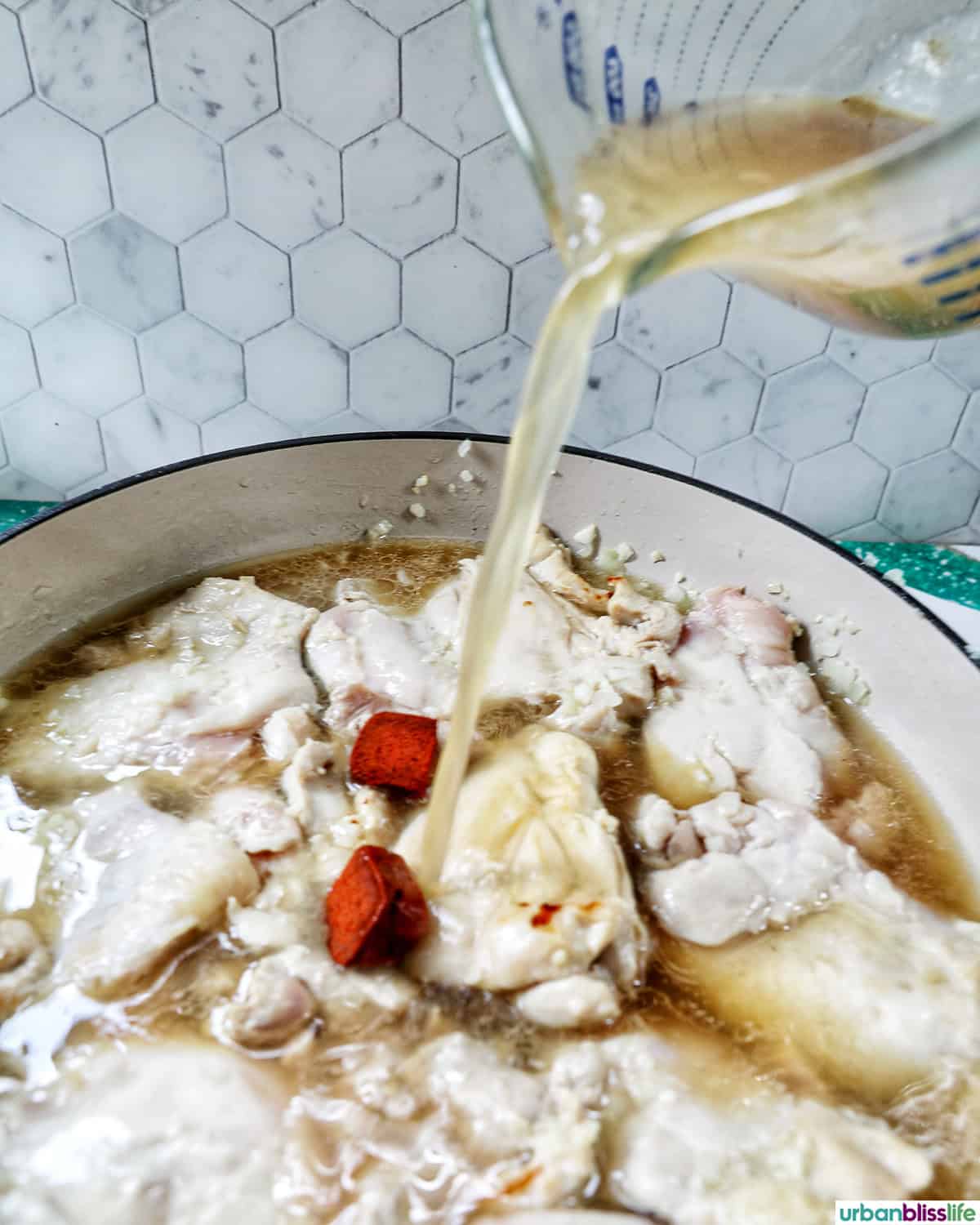
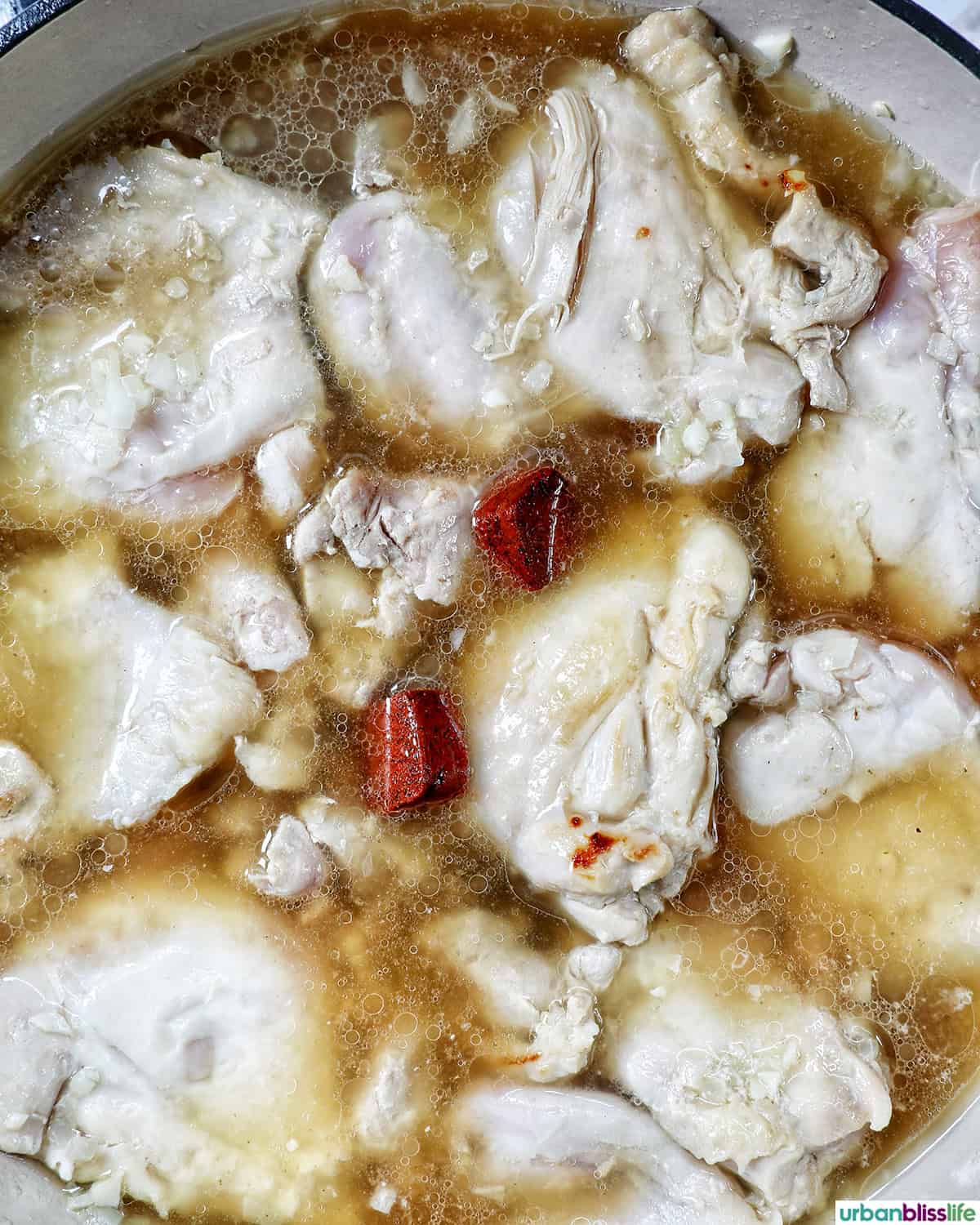
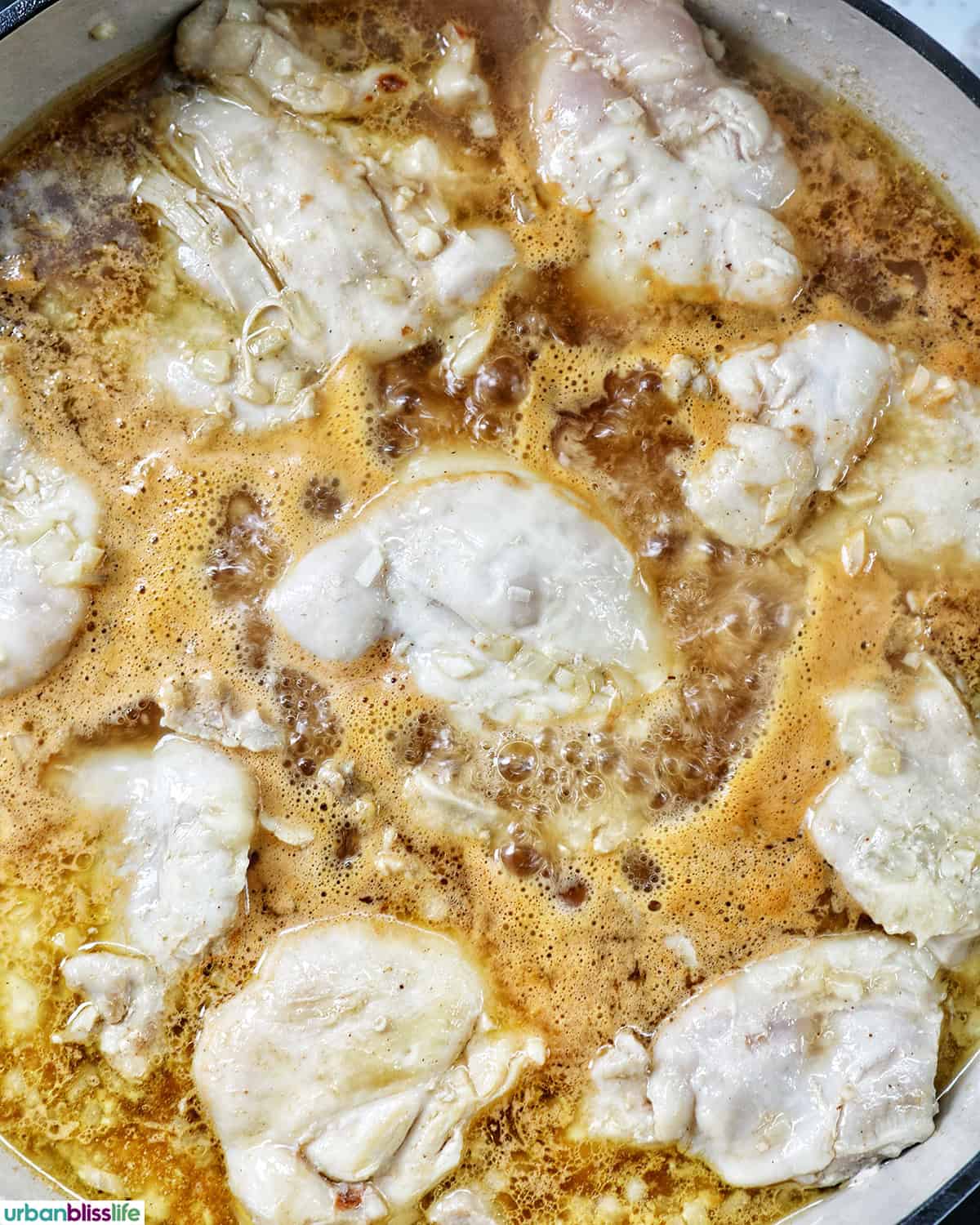
4-6. Add the chicken broth/stock and annatto paste and bring to a boil.
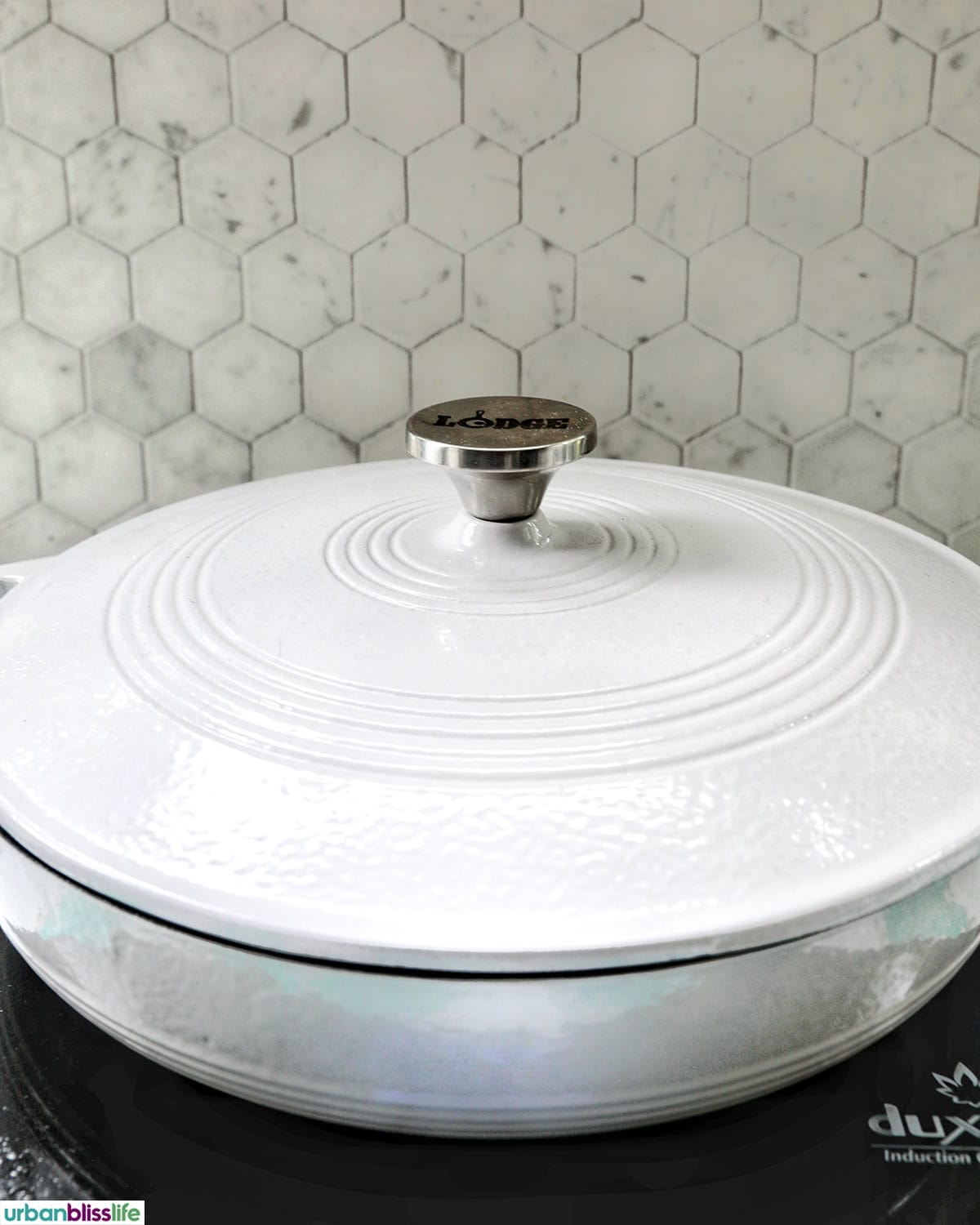
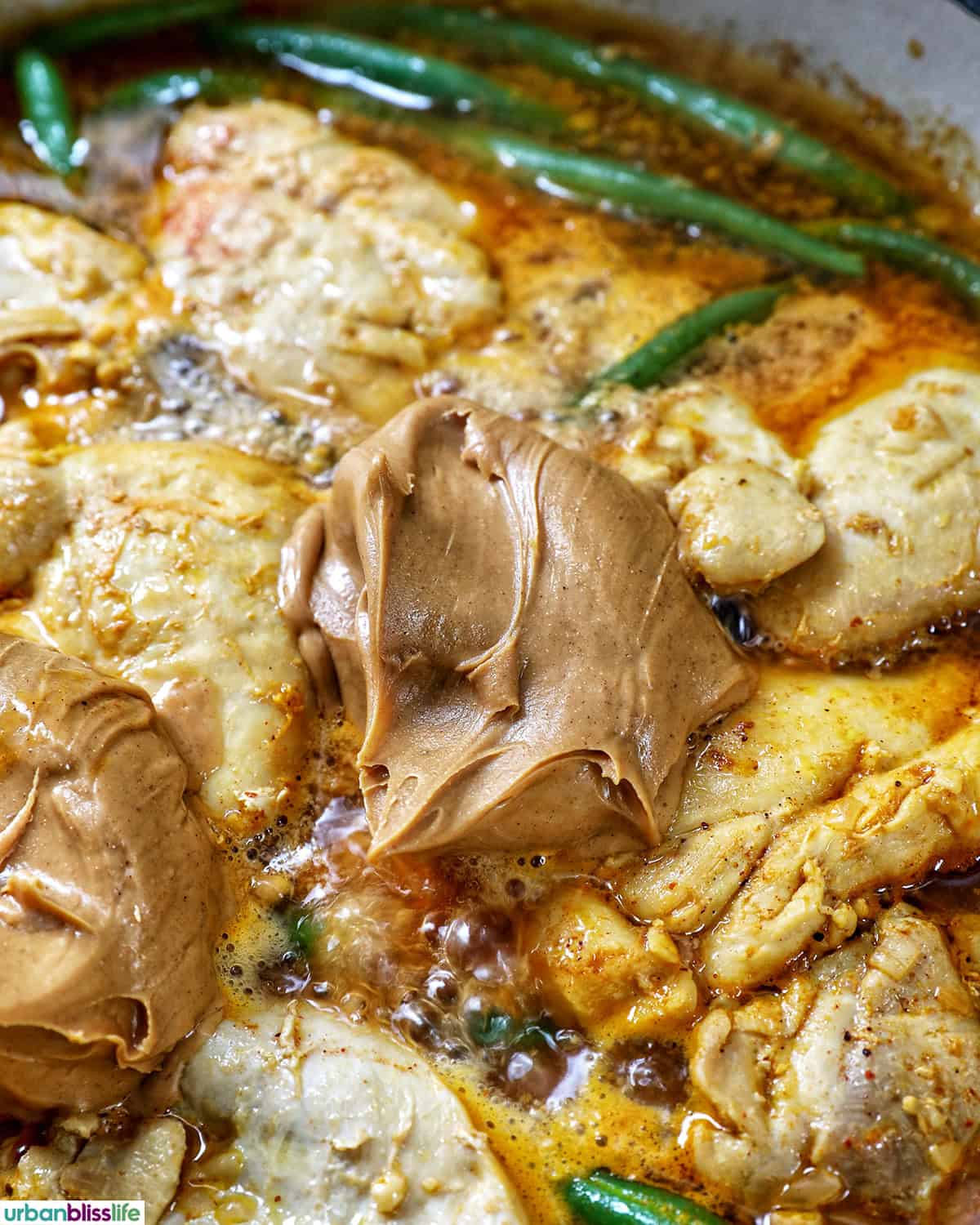
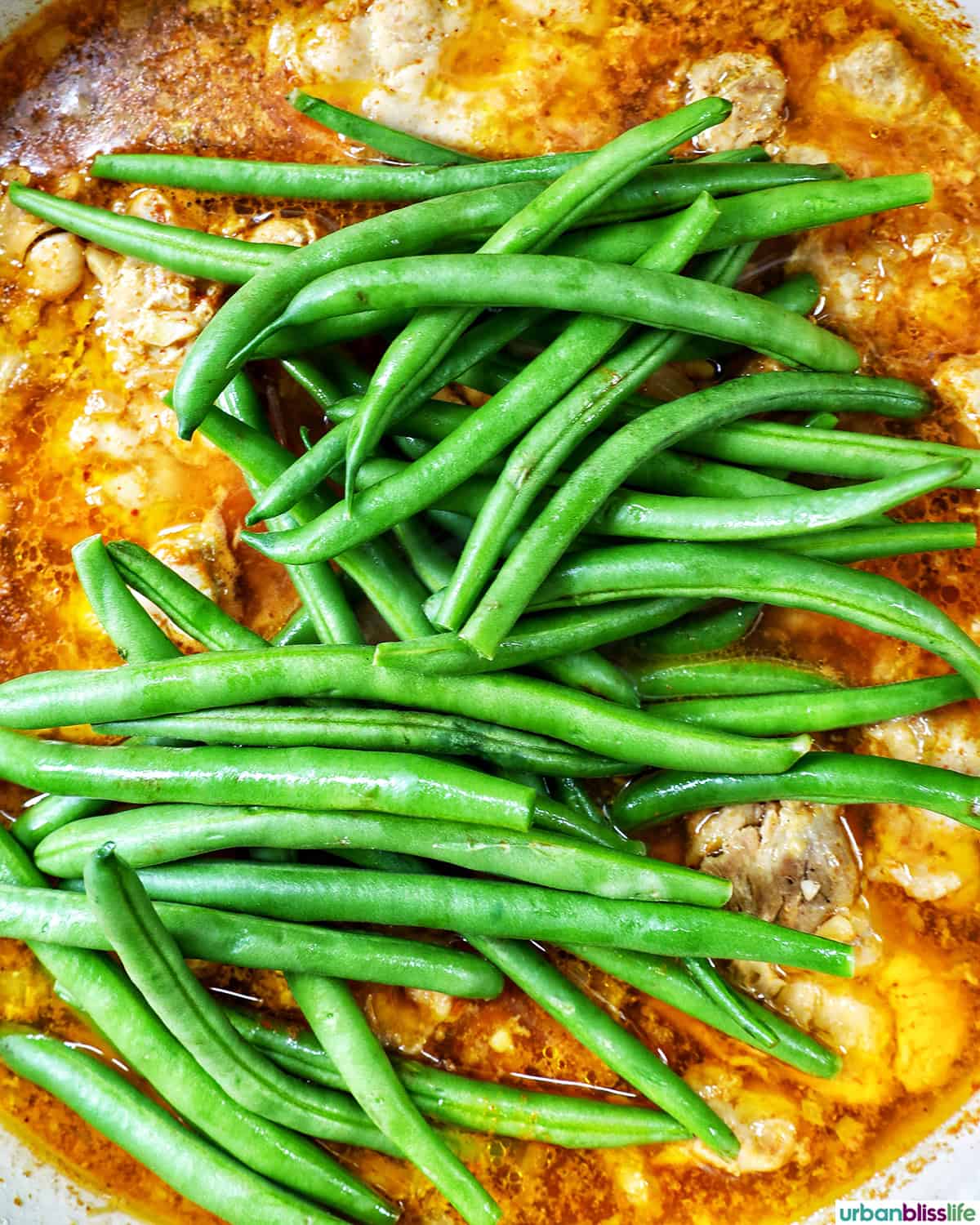
7. Lower the heat to summer and cover, cooking for 25-30 minutes, just until the chicken is cooked.
8. Uncover and add the peanut butter and cornstarch slurry. Stir.
9. Stir in the green beans.
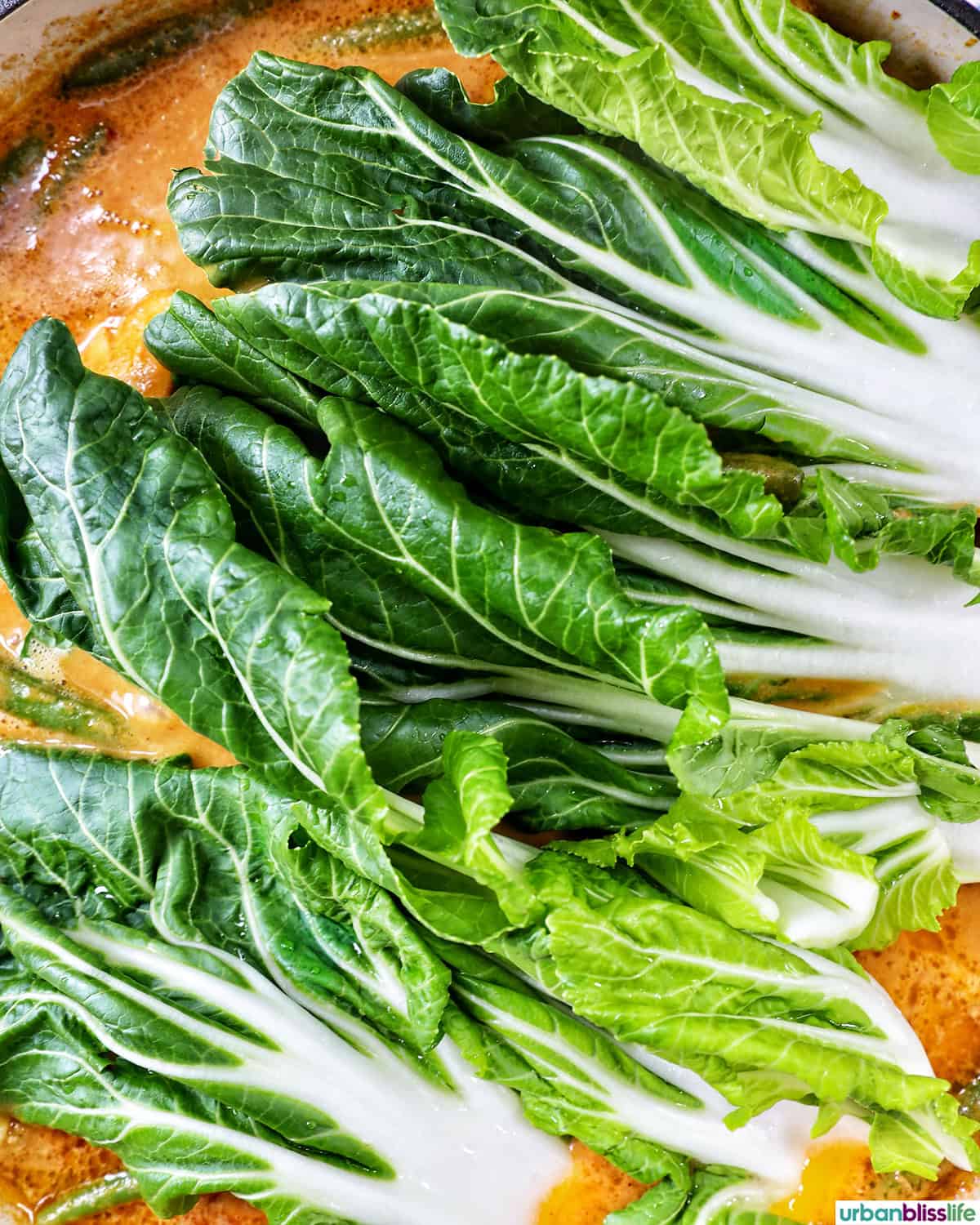
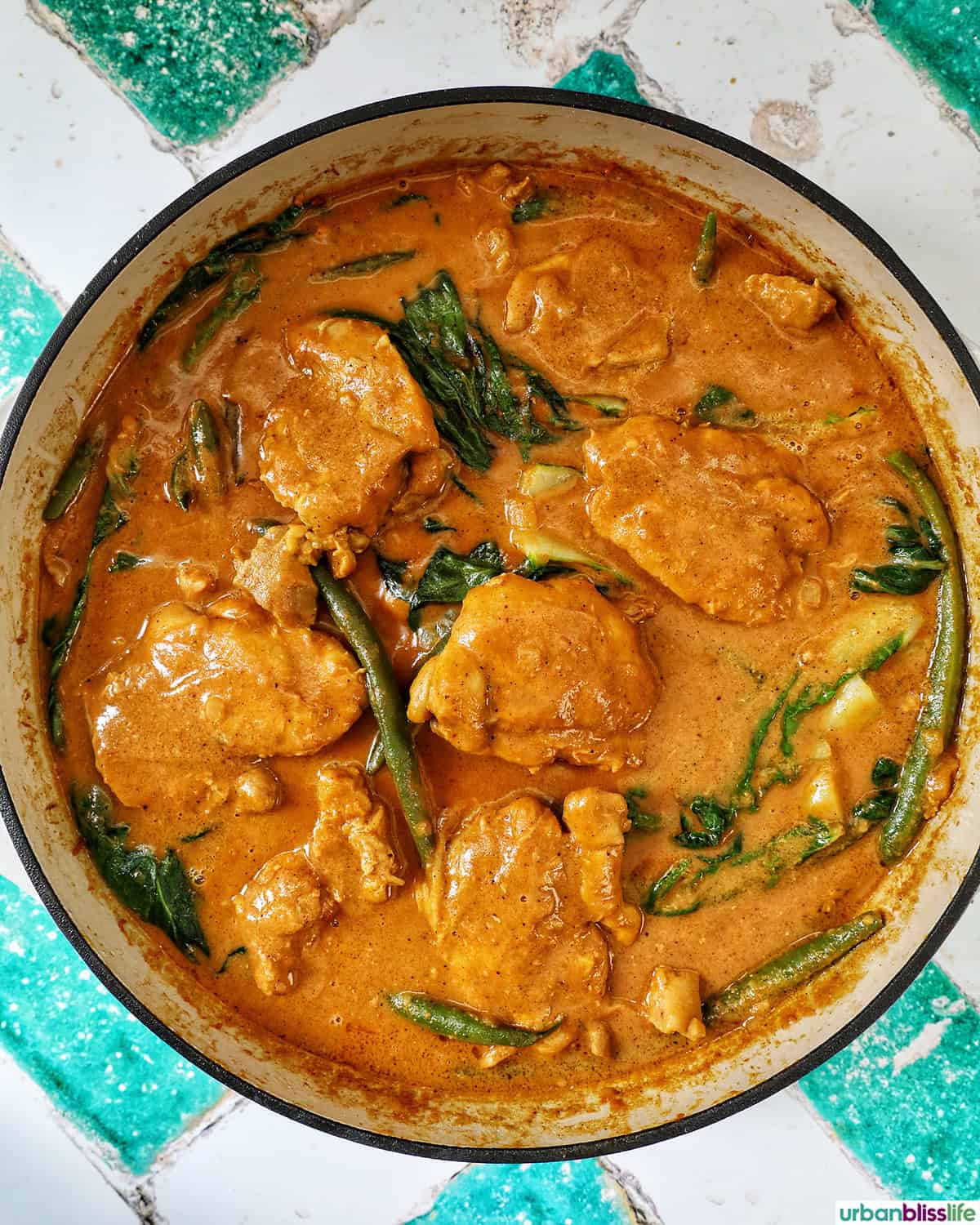
10. Add the bok choy and stir into the liquid, cooking until it starts to wilt.
11. Serve with a side of bagoong sauce or shrimp paste, if desired.
Marlynn’s Tip
Recipe Tips
- Many people like to put in larger pieces of bok choy, but you can give the bok choy a rough chop before adding if you prefer smaller pieces.
- Add a sprinkling of chopped peanuts and sliced green onions on top just before serving.
Recipe FAQs
Absolutely. Swap chicken for tofu or mushrooms and use vegetable stock instead of chicken stock.
It is based on our Filipino family’s traditional kare kare recipe. However, I’ve made some smart swaps to help home cooks here in the US, UK, and other EU countries make this with ease. If you can easily find more traditional ingredients where you live (see the Ingredient Notes section above), then go for it!
Yes. The flavors deepen overnight, making it even better the next day. Just reheat gently.
Store leftovers in an airtight container in the refrigerator for up to 4 or 5 days.
Serving suggestions
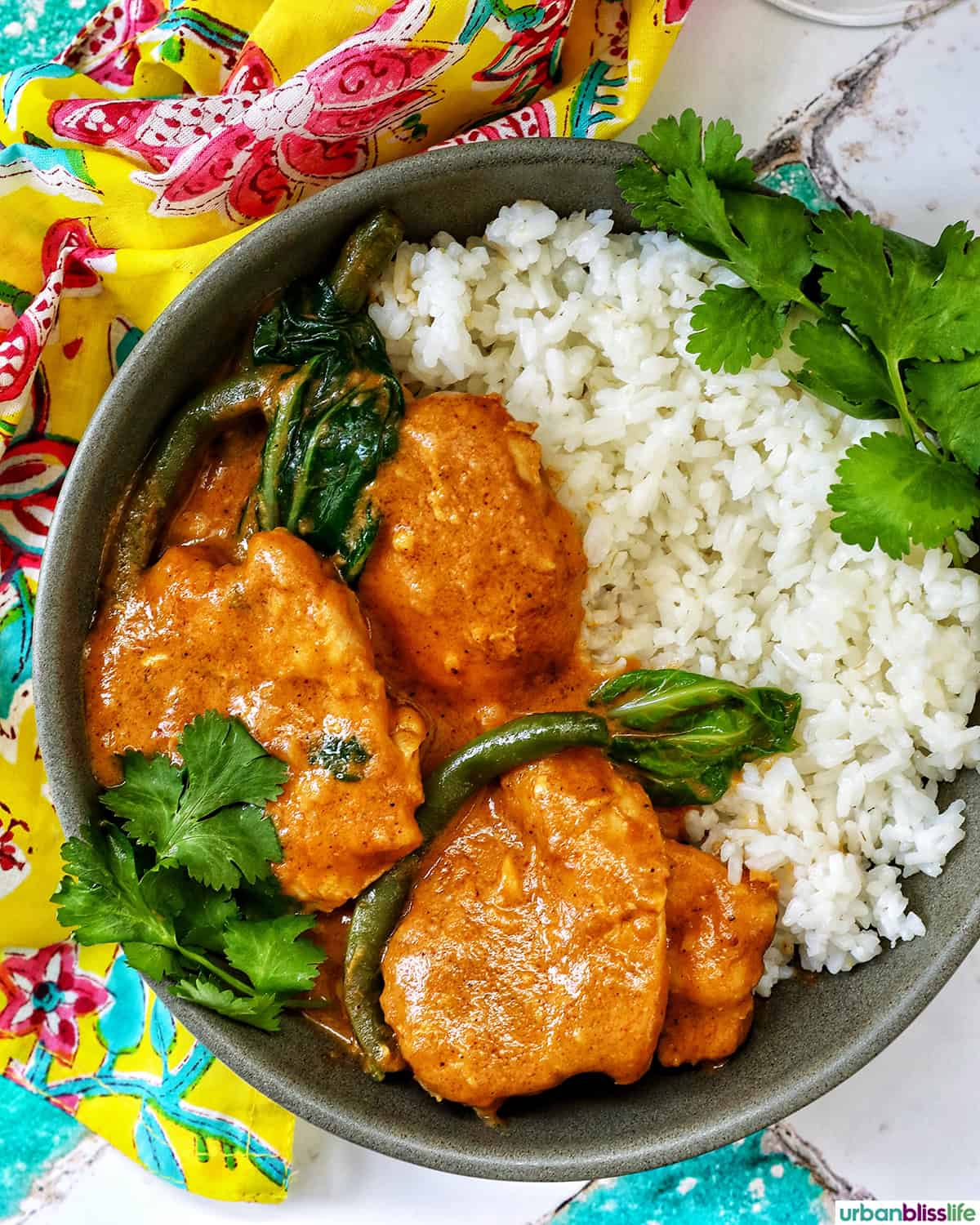
We love this chicken kare kare served over Instant Pot garlic rice with a cucumber dill salad.
Make it a complete Filipino feast by serving it with crowd favorites like lumpia, pancit bihon, and pandesal.
For dessert? Make this easy biko recipe or Filipino leche flan.
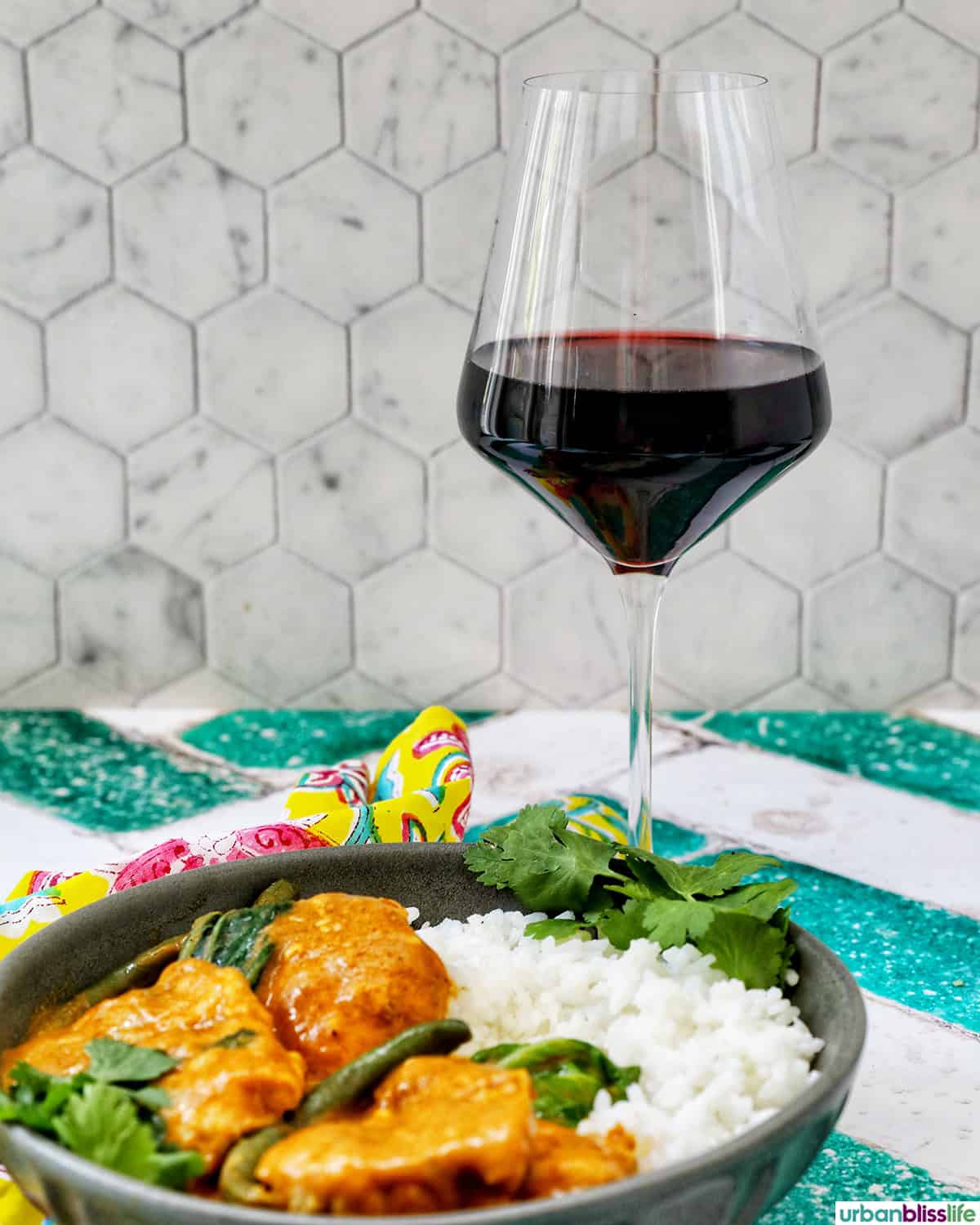

🍷 🥂 Wine pairings
Like many Filipino recipes, this kare kare recipe can pair well with either a white wine or a red wine:
- Chenin Blanc: Its crisp acidity and notes of honeyed fruit cut through the richness of the peanut sauce.
- Grenache: A light, juicy red with soft tannins that complements the savory-sweet depth of the stew.
More Filipino recipes
Filipino Recipes
Filipino Pork Adobo
Filipino Recipes
Chicken Inasal
Filipino Recipes
Filipino Ube Desserts
Asian Recipes
21+ Delicious Recipes to Celebrate Lunar New Year
Did you make this recipe? Don’t forget to leave a 5-Star 🌟🌟🌟🌟🌟 rating in the recipe card, and if you really loved it, please leave a comment further down on the page. Thank you!
Filipino Chicken Kare Kare
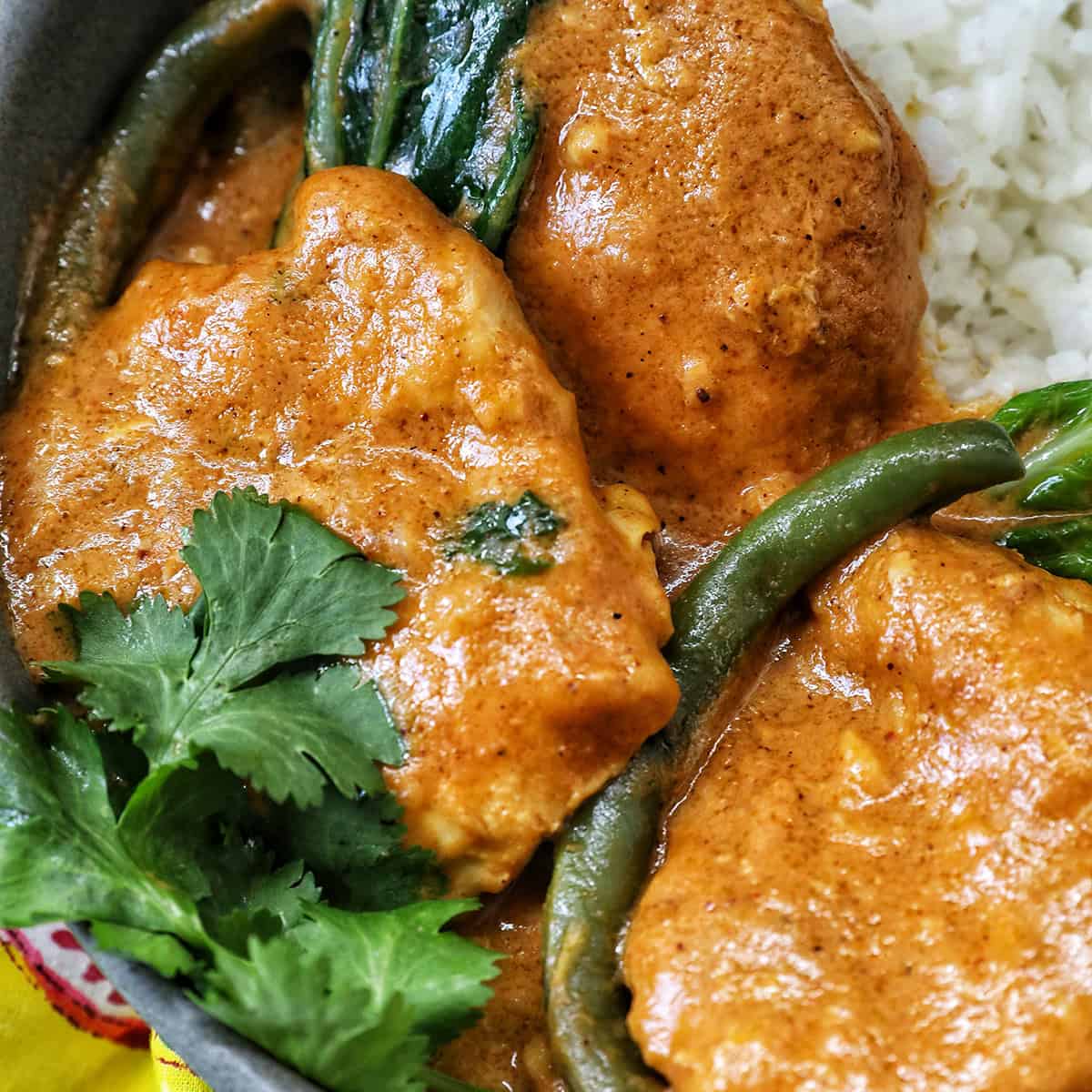
Equipment
- 1 Dutch Oven or other large high sided pan
Ingredients
- 2 teaspoons cornstarch
- 2 Tablespoons water
- 2 Tablespoons vegetable oil, or other cooking oil
- ½ cup diced onion
- 4 garlic cloves, minced
- 2½ pounds boneless, skinless chicken thighs
- 2 cups chicken broth
- 1 Tablespoon fish sauce
- 1½ teaspoons annatto paste
- ¾ cup peanut butter
- ½ pound green beans
- 1 bunch bok choy
- bagoong or other shrimp paste, for serving
Instructions
- Make the cornstarch slurry: in a medium bowl, whisk together the cornstarch and water. Set aside.
- Heat the oil in a Dutch oven or other high-sided pan over medium heat.
- Add the onions and garlic and sauté for 1-2 minutes, until soft and fragrant.
- Add the chicken and cook about 4-5 minutes on each side, lightly browning on all sides.
- Add the chicken broth, fish sauce, and annatto paste. Stir. Increase heat to medium-high and bring to a boil.
- Once boiling, lower the heat to low-medium and cover and simmer for 25-30 minutes, just until the chicken is tender and around 155-160°F.
- Uncover and stir in the peanut butter until well combined.
- Add the cornstarch slurry and stir to combine.
- Add the green beans and gently push them so they are mostly under the liquid.
- Return the cover and cook, covered, for 5 minutes.
- Uncover, add the bok choy, and cook for 2 more minutes, just until the bok choy has slightly softened.
- Serve with a side of bagoong* or shrimp paste.
Notes
- Instead of oxtail, we use chicken, which is common enough and easy to find in any grocery store in the US.
- This recipe leaves the eggplant out. Feel free to add it to the recipe if you wish.
- Long string beans can be tricky to find sometimes depending on where you live, even in local Asian supermarkets, so this recipe uses regular green beans. They are just as delicious!
Nutrition
Nutrition information is automatically calculated, so should only be used as an approximation.
Follow on Instagram














